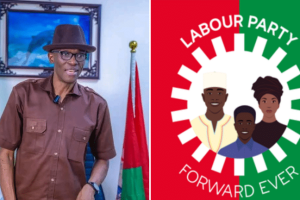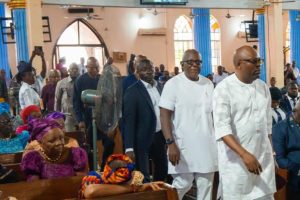
Nigeria’s Minister of Power, Adebayo Adelabu, has announced that the country can no longer afford the burden of electricity subsidies, signaling a major shift towards cost-reflective electricity tariffs.
The minister’s statement highlights the urgent need for reforms in Nigeria’s power sector amid mounting debts and a struggling energy infrastructure.
Cost-Reflective Tariffs to Replace Subsidies
Speaking during a strategic meeting with the Chairmen of Power Generating Companies (GenCos) in Abuja, Adelabu emphasized that the Nigerian economy is no longer capable of sustaining broad-based subsidies in the power sector.
“Our economy cannot sustain subsidies indefinitely. Citizens must pay the appropriate price for the energy they consume,” Adelabu said.
He clarified, however, that the Federal Government would continue to support the most vulnerable Nigerians through targeted electricity subsidies, though specifics on eligibility remain undefined.
A recent report by the Nigerian Electricity Regulatory Commission (NERC) reveals that Nigerians currently pay an average of ₦88.20 per kilowatt hour (kWh) for electricity, while the actual cost of supply is ₦116.18/kWh. This creates a subsidy shortfall of approximately ₦27.97/kWh, which is absorbed by the government.
Importantly, only 15% of power consumers—mostly those classified under Band A—currently pay full cost-reflective tariffs, meaning 85% of customers still benefit from government subsidies.
FG Plans Partial Settlement of ₦4 Trillion GenCo Debt
The minister disclosed that the government owes over ₦4 trillion to power generation companies. To address this, the FG is developing a hybrid repayment plan involving both cash and promissory notes.
“We must pay a substantial portion of the debt in cash, and issue promissory notes for the rest. That’s the only way we can restore confidence in the sector,” Adelabu stated.
He also revealed that President Bola Ahmed Tinubu would soon convene a high-level meeting with the leadership of the GenCos to finalize the debt repayment strategy.
Sector Leaders Warn of Imminent Collapse
During the Abuja meeting, industry stakeholders raised alarm about the deteriorating financial health of the power sector. Col. Sani Bello (Rtd.), Chairman of Mainstream Energy Solutions, cautioned that liquidity challenges were pushing the entire ecosystem to the brink.
“The power sector is at a tipping point. Without urgent intervention, the system could collapse,” Bello said.
Kola Adesina, Chairman of Egbin Power and First Independent Power Ltd, echoed the sentiment, stressing the national implications:
“This is not just a sectoral issue. Power is central to Nigeria’s economy—homes, hospitals, factories all depend on it. This is a national emergency.”
GenCos Outline Key Challenges in Nigeria’s Power Sector
Dr. Joy Ogaji, CEO of the Association of Power Generating Companies (APGC), outlined several systemic challenges that continue to hinder the performance of GenCos:
- Chronic payment defaults
- Volatile gas supply
- Foreign exchange (FX) fluctuations
- Excessive taxation
- Frequent grid collapses
Ogaji pointed out that the naira’s depreciation—from ₦157/$1 in 2013 to over ₦1,600/$1 in 2025—has severely eroded GenCos’ maintenance budgets and their ability to repay loans, thereby jeopardizing sustainability.
“Despite the risks and operational hurdles, GenCos have remained patriotic, but this trend is unsustainable,” she added.
What Lies Ahead for Nigeria’s Power Sector?
The transition to cost-reflective tariffs, the proposed debt settlement, and targeted subsidies signal a critical pivot in Nigeria’s energy policy. While necessary, these reforms must be managed carefully to prevent worsening the cost of living crisis, especially for low-income households.
Experts recommend:
- Transparent criteria for targeted subsidies
- Timely implementation of debt repayment
- Investment in renewable and decentralized energy solutions
- Improved regulatory oversight and grid modernization





